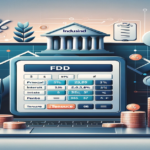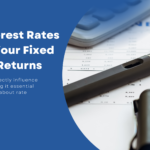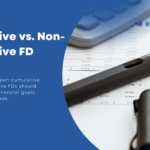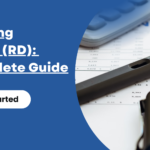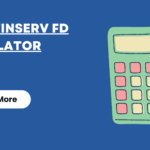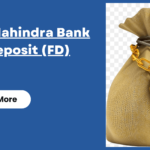Introduction to Fixed Deposits (FDs)
A Fixed Deposit (FD) is a secure investment option that offers guaranteed returns over a fixed tenure. It’s a financial instrument offered by banks and NBFCs with fixed interest rates, making it a go-to choice for risk-averse investors.
What is a Fixed Deposit?
A Fixed Deposit is a financial product where you invest a lump sum amount for a fixed period at a predetermined interest rate. The interest rate remains constant throughout the tenure, ensuring steady returns.
Key Features:
- Guaranteed Returns: Fixed interest rates ensure consistent returns.
- Capital Safety: The principal amount is secure and returned at maturity.
- Flexible Tenures: Tenures range from 7 days to 10 years or more.
How Fixed Deposits Work
When you open an FD, you deposit a lump sum for a fixed tenure at a specific interest rate. The bank or NBFC pays interest either periodically or at maturity, with compounding playing a role in longer tenures.
Types of Fixed Deposits
- Regular Fixed Deposit: Standard FD with a fixed sum and period.
- Tax-Saving Fixed Deposit: Offers tax benefits under Section 80C but has a 5-year lock-in period.
- Recurring Deposit (RD): Deposit a fixed sum monthly over a specified tenure.
- Senior Citizens’ Fixed Deposit: Higher interest rates for individuals above 60 years of age.
- NRE/NRO Fixed Deposit: FDs for Non-Resident Indians with specific benefits.
Advantages of Fixed Deposits
- Guaranteed Returns: Assured interest rates ensure predictable returns.
- Capital Safety: FDs are risk-free, protecting your principal investment.
- Flexibility: Choose from short to long-term tenures based on your needs.
- Liquidity: Premature withdrawal is allowed, although with a penalty.
- Higher Interest for Senior Citizens: FDs offer higher rates for retirees.
Disadvantages of Fixed Deposits
- Lower Returns: FDs offer lower returns than riskier assets like stocks or mutual funds.
- Inflation Risk: Fixed interest rates may not keep pace with inflation.
- Taxable Interest: Interest earned is fully taxable.
- Premature Withdrawal Penalty: Withdrawing before maturity incurs a penalty.
Fixed Deposit Interest Rates
Interest rates vary based on the financial institution, tenure, and type of FD. Senior citizens typically receive higher rates.
Example of Interest Rates:
| Tenure | Interest Rate (General) | Interest Rate (Senior Citizen) |
|---|---|---|
| 1 Year | 5.5% – 6.0% | 6.0% – 6.5% |
| 3 Years | 6.0% – 6.5% | 6.5% – 7.0% |
| 5 Years | 6.5% – 7.0% | 7.0% – 7.5% |
Tax Implications of Fixed Deposits
Interest earned on FDs is taxable as per your income tax slab. If the interest exceeds ₹40,000 (₹50,000 for senior citizens), banks deduct TDS.
Tax-Saving FDs are eligible for deductions under Section 80C, but they come with a 5-year lock-in period.
Premature Withdrawal & Loan Against FD
Premature Withdrawal
Although FDs have fixed tenures, premature withdrawal is allowed with a penalty on the interest earned.
Loan Against FD
You can also take a loan against your FD instead of withdrawing it, using the deposit as collateral while continuing to earn interest.
Strategies to Maximize FD Returns
- Laddering FDs: Invest in multiple FDs with different tenures for better liquidity and higher returns.
- Choose the Right Tenure: Align FD tenures with your financial goals to optimize returns.
- Senior Citizen Schemes: Explore FD schemes specifically designed for seniors, which offer higher rates.
Conclusion
Fixed Deposits are a reliable, low-risk investment option for individuals seeking guaranteed returns and capital safety. By understanding the types of FDs, tax implications, and strategies to maximize returns, you can effectively use FDs to meet your financial goals.
